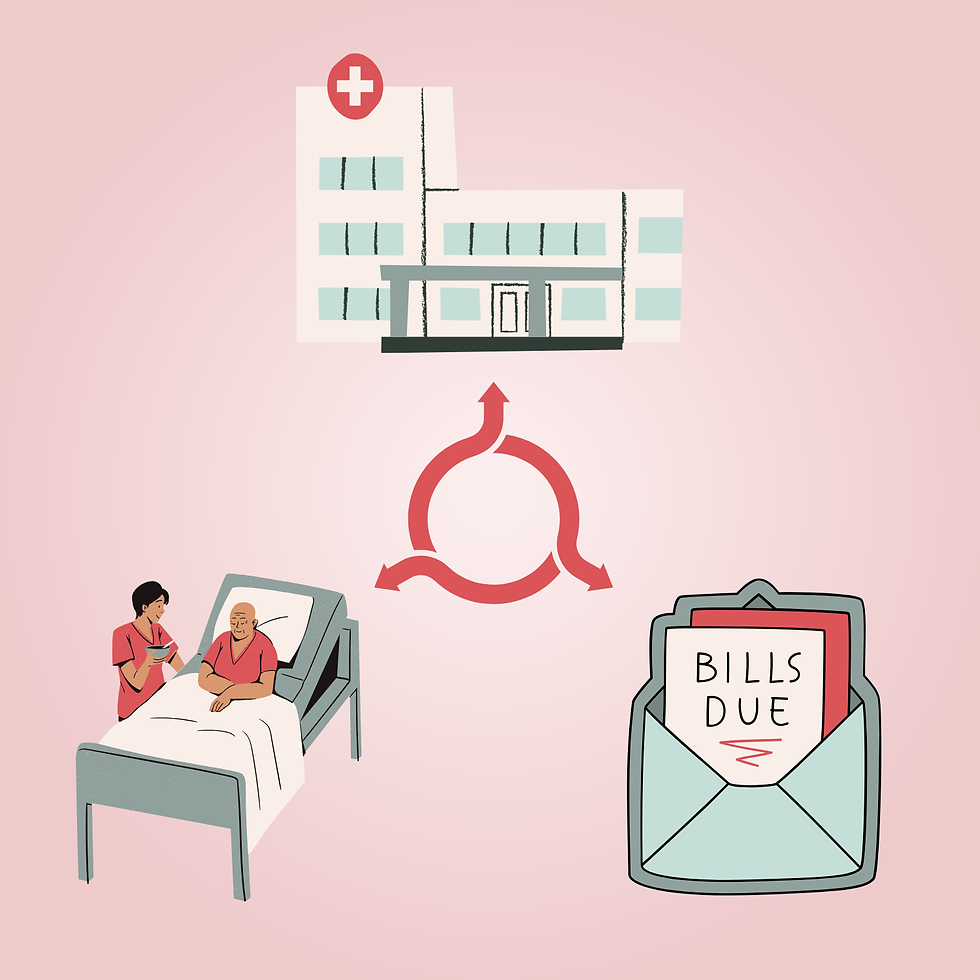Ethical Applications of Precision Medicine: Lessons from Around the World
- Camille Krejdovsky
- Mar 21, 2022
- 4 min read
Since the completion of the Human Genome Project in the early 2000s, the field of genetics and genomics has rapidly expanded. As connections between genotype and phenotype were elucidated, companies arose offering to interface directly with consumers through the internet to give them information about their genomes. Because the industry and science developed rapidly, regulations around direct-to-consumer (DTC) testing developed as a reactionary mechanism. While this led to a piece-meal approach towards the regulation of a new industry, the resulting laws around the world are reflective of differing values and views of genetic information. As the world moves into the era of precision medicine, questions arise about what type of information should be released to patients, timing, and in what contexts. Laws around DTC testing have attempted to answer these questions outside of the healthcare setting and can provide perspective into the benefits and drawbacks of different approaches.

At one end of the regulatory spectrum lies France, the strictest country in Europe with regard to the regulation of DTC genetic tests (1). They have imposed an essential ban on genetic testing unless ordered directly by a physician (1). After a revision of the French Bioethics Law in 2011, a provision was put in place imposing a fine of 3,750 euros for those attempting to analyze their own genetic information through the purchase of tests (2). The French attitude maintains that genetic information is an element of the human body, but that it cannot be owned or take on monetary value (3).
Just below France in terms of stringency lies Korea. A revision to the Korean Bioethics and Safety Act in 2017 allowed for a subset of 12 phenotypes and 46 genes to be assessed by DTC tests (4). While this list is slowly expanding as individual companies receive approval for predictive tests for certain chronic diseases and cancers, progress has been slow and the government has been careful to limit what parts of their DNA citizens can access.
The regulatory environment in the United States sits somewhere in the middle. Many of the most well known DTC companies, such as 23andMe, were founded in the US and were essentially unregulated until 2010. Conflicts between testing companies and the FDA began when letters were sent to the largest companies stating that their tests fell into the category of “medical devices” that needed to be submitted to the FDA for approval (5). Currently, the FDA regulates tests for “moderate to high-risk medical purposes” (6). However, 23andMe and others will also return raw data to consumers, which can then be analyzed by software accessible via the internet, effectively circumventing FDA regulation (7). Also, the FDA does not currently regulate tests for what they consider “low risk medical” and “non-medical purposes”. Attitudes in the US center around themes of autonomy and property rights, with genetic information being something that can be bought and sold (3).
On the far end of the spectrum lie countries with very loose oversight of DTC genetic testing. In China, no specific legislation has been created to oversee DTC companies; only existing laws focused around genetic resource security apply (8). This has lead to criticism about the existence of holes in consumer protection, especially with respect to the treatment of health information and privacy (8). The situation is similar in South Africa, as well as across the African continent as a whole, where there is a lack of guidance and regulation surrounding the tests (9). Although this approach emphasizes the individual’s autonomy in exploring their genetics, it doesn’t hold companies accountable in areas such as data privacy and test accuracy.
Because the rise of the DTC genetic testing landscape has preceded the widespread application of precision medicine in healthcare, the different regulatory approaches that have been taken can be used as a blueprint. Each provides its own set of benefits and drawbacks with respect to the extent individuals should be allowed access to information about their genome and their future. While widespread integration of genetic data into the healthcare sphere will come with its own set of challenges, there is much to be learned from the initial philosophies that have emerged.
Edited by: Danika Dai
Graphic Designed by: Simone Nabors
References:
Kalokairinou L, Howard HC, Slokenberga S, et al. Legislation of direct-to-consumer genetic testing in Europe: a fragmented regulatory landscape. J Community Genet. 2018;9(2):117-132. doi:10.1007/s12687-017-0344-2.
LOI n° 2021-1017 du 2 août 2021 relative à la bioéthique . Legifrance.gouv.fr. https://www.legifrance.gouv.fr/jorf/id/JORFTEXT000024323102/.
Stoeklé HC, Forster N, Turrini M, et al. La propriété des données génétiques - De la donnée à l’information [The ownership of genetic data: from data to information]. Med Sci (Paris). 2018;34(12):1100-1104. doi:10.1051/medsci/2018291.
Kim J. W. (2019). Direct-to-consumer genetic testing. Genomics & informatics, 17(3), e34. https://doi.org/10.5808/GI.2019.17.3.e34.
Allyse MA, Robinson DH, Ferber MJ, Sharp RR. Direct-to-Consumer Testing 2.0: Emerging Models of Direct-to-Consumer Genetic Testing. Mayo Clin Proc. 2018;93(1):113-120. doi:10.1016/j.mayocp.2017.11.00.
Center for Drug Evaluation and Research. Direct-to-consumer tests. U.S. Food and Drug Administration. https://www.fda.gov/medical-devices/in-vitro-diagnostics/direct- consumer-tests.
Jautrou H. Les tests génétiques en libre accès - Régulation par le marché, ou régulation médicale ? [Direct-to-consumer genetic testing: a regulation by the market, or a medical regulation?]. Med Sci (Paris). 2020;36(2):153-159. doi:10.1051/medsci/2019264.
Du, L., & Wang, M. (2020). Genetic Privacy and Data Protection: A Review of Chinese Direct-to-Consumer Genetic Test Services. Frontiers in genetics, 11, 416. https://doi.org/10.3389/fgene.2020.00416.
Dandara, C., Greenberg, J., Lambie, L., Lombard, Z., Naicker, T., Ramesar, R., Ramsay, M., Roberts, L., Theron, M., Venter, P., & Bardien-Kruger, S. (2013). Direct-to-consumer genetic testing: To test or not to test, that is the question. South African Medical Journal, 103(8), 510-512. doi:10.7196/SAMJ.7049.



Comments